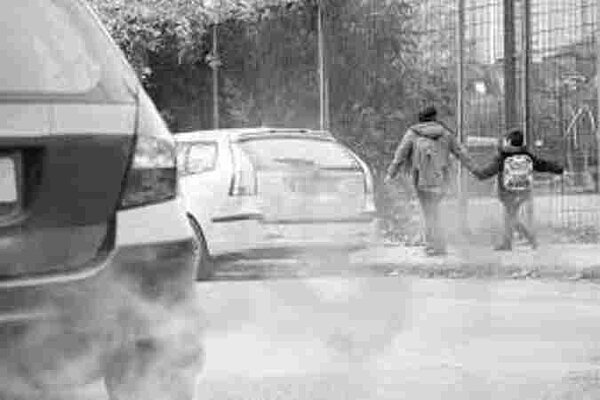Air quality - time for action
Much of south London has air quality that falls short of World Health Organisation standards. Bromley Council continues to collect limited data and turn a blind eye to the issue.
Independent research has shown Bromley has the highest number of air quality related deaths in all of London despite being one of the greenest and least urban boroughs.
In 2019, it is estimated 4000 people died unnecessarily due to poor air quality in London. Many more will develop breathing difficulties, including children, leading to long-term suffering.
Bromley Lib Dems have continued to campaign for Bromley Council to prioritise air quality. Over several years we have found the council to be woefully disinterested in the issue, instead they use the data from their single active air quality monitor located off Bromley High Street, plus a series of "diffusion tubes" that give an annual average of NO2 readings at different locations. In response to this lack of action we have set up a network of air quality monitors across the borough, showing the varying levels of pollution across our large and diverse borough.
In response to the Council's annual update on their Air Quality Action Plan in September 2022 the Lib Dems have published this list of proposed steps to work together to improve air quality in our borough.
Immediately:
- We’d like to see a general ongoing commitment to improve air quality in Bromley. This could be embraced by all parties.
- We want to see an extension of formal monitoring and reporting to include particulate matter (PM2.5 and PM10)
- NO2 - while diffusion tubes indicate general trends they cannot be used to assess when during the day NO2 is highest and how often people are exposed to excessive levels. We therefore hope that the timed readings at Harwood Avenue, the 4 new Breathe London monitors plus other monitors as they come on line can be used as part of the NO2 monitoring and reporting.
- In the AQA the council undertook to seek funding for automatic monitoring of PM10 and PM2.5 - we’d like to see a report of what funding has been applied for.
- Action Areas - the council are monitoring Elmers End and Widmore Road. Can we have more information about the measurements here - including monthly readings? We’d like clarity on what makes an area count as an action area (e.g. why wasn’t Anerley Hill included), and we’d like the council to commit to include new areas if readings indicate they are areas of concern. For example Orpington’s diffusion tube readings are high enough to consider this to be an area of concern.
- We would like the impacts on air-quality to be a material consideration when making changes to highways, road layouts and junctions.
- When prioritising schemes to put forward for TfL funding, we would like more weight to be given to schemes that will deliver tangible improvements in air quality, especially for vulnerable people.
- Continuing to resist the Biggin Hill airport expansion and pushing for ways to mitigate noise and air pollution from the existing air traffic.
Longer term:
- School Streets - regrettably Bromley Council have voted to stop supporting School Streets. We’d like to see this policy reversed as soon as possible - we have long supported School Streets for the air quality benefits they bring. They are popular with parents and carers and also boost children's health by encouraging active travel.
- We’d like a single portfolio holder to be given responsibility for clean air - it’s currently covered by several portfolio holders. This would focus minds on the issue and mean that it’s considered as part of all council decisions.
- Schools - we want the Council to commit to working with schools to ensure each school has clean air action plan (such as outlined in the London Schools Pollution Helpdesk - www.pollutionhelpdesk.co.uk)
- Diesel-free borough - we’d like a commitment to discourage the use of diesel vehicles including stopping issuing new parking permits for diesel vehicles, and investigating the feasibility of different parking charging depending on emissions,
- Phasing out wood burning: We want the council to commit to raising the awareness of the impact of wood burning and to work with the Mayor of London to phase out wood burning where not necessary
- Making greener modes of transport more attractive. From expanding the use of green buses and reviewing bus routes, to making streets safer so pedestrians and cyclists have the confidence to move away from cars.
- Decisive national plans on the climate, ensuring air quality and carbon emissions are curbed dramatically

